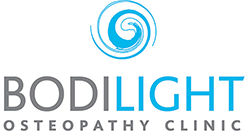Muscle injury is something that can easily happen to anyone at any time. It doesn’t matter if you are a professional athlete or someone who walks to the car for exercise. There are plenty of remedies that can speed up the recovery process if you are unfortunately suffering from a muscle injury, but the simplest way to help recuperation is sleep.
The Importance of Sleep
Sleep is something that most of us would agree that we need more of. The average adult spends a third of their life asleep, and it is during this time that recovery occurs.
We all know how sluggish we feel after a lack of sleep and often turn to a caffeine hit to give us a boost to get through the day but what are the physical effects of not enough sleep? It is so important to ensure that your body is getting enough rest to help in the recuperation process and to get you back to your best. Understanding the relationship between muscle recovery and sleep will help you find the perfect balance.
Minor Injuries
A minor muscle injury usually consists of a muscle tear, strain or pull and can occur from even the simplest of movements, like overreaching. This happens in the muscle tendons, or fibres, where small blood vessels are damaged leading to bleeding, which will in turn cause bruising and pain to the nerve endings in the damaged area. You may also find that you are suffering with swelling around the affected muscle.
Sleep and Recovery
Minor muscle injuries are easily treatable, especially with plenty of rest. Research has consistently shown that an average of 8 hours of sleep per night will help adults feel refreshed and energised the next day. However, due to the importance of sleep for muscle recovery, it is recommended that you should aim for 9-10 hours if you have sustained an injury.
The reason that sleep is regarded one of the most important factors in physical recovery is due to blood flow and growth hormones. It is whilst you are asleep that 95% of growth hormones are released.
Growth hormone, released by the pituitary gland, is a key component in muscle recovery and, as its name suggests, aids cell reproduction and regeneration to repair your muscles whilst you sleep.
General energy consumption whilst you are asleep is lowered meaning more energy can be used to restore your bones and muscles. An example of this can be found during the period of deep sleep. Around 40% of the blood flow that usually flows to the brain will instead flow to muscles, or areas in need, to help restore energy. Hormones known as Prolactin, which have anti-inflammatory properties, are also released during deep sleep to further help with recovery of any achy joints.
A build-up of lactic acid can lead to sore muscles, or the feeling of knots. During sleep, extra oxygen is supplied to the muscles and this contributes to the breakdown of lactic acid. By regularly missing sufficient sleep required for consistent healing, problems will begin to build up. It is also important to remember that the body heals any minor tears in the muscles which have occurred during the day, whilst you are asleep.
It is interesting to note that sleep is not only vital for recovery, but can also prevent injury from initially occurring. Recent studies have shown that there is a direct correlation with lack of sleep and injuries sustained, even at the workplace.
It seems like a cliché response to any minor injury ‘Have a good sleep and you will feel better,’ but in this case it is actually true. Sleep is imperative in healing, but not only for muscle strains. Getting the required amount of sleep every night is better for your overall health as well. With our daily lives becoming increasingly stressful, sleep and rest will not only help you to recover more quickly, but will also help to prevent further damage to any injured areas.
Sleep well, you deserve it.



